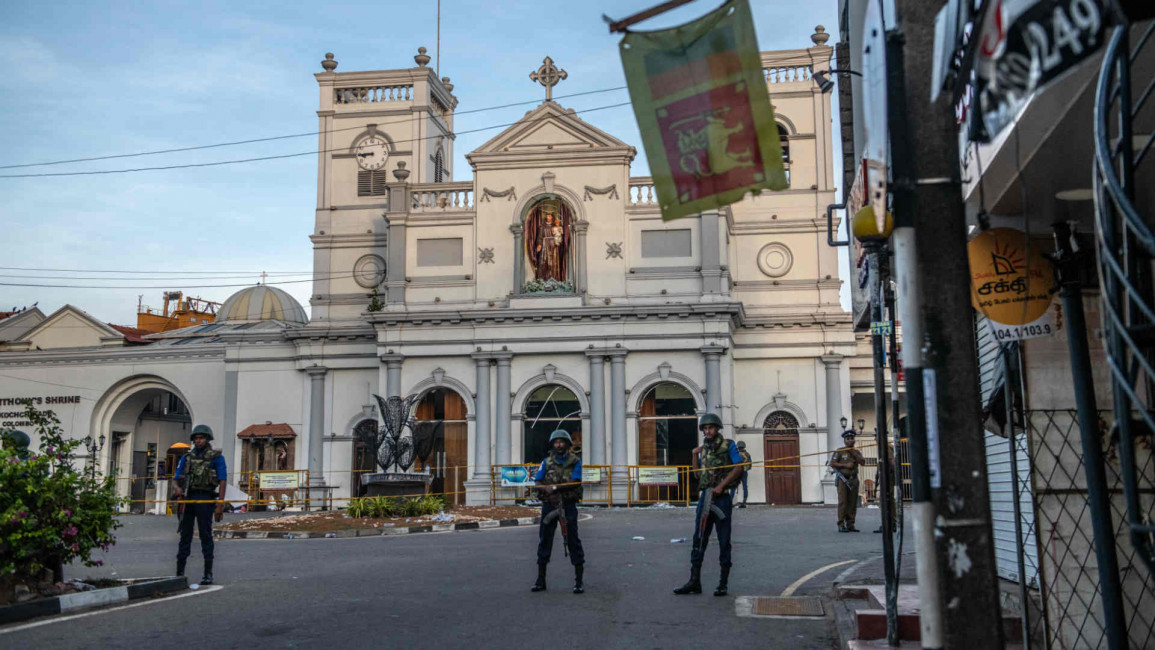IS claims Sri Lanka Easter Day attacks, which killed more than 300
The Islamic State group has claimed responsibility for Sunday's devastating attacks in Sri Lanka, which killed more than 300 people.
The militant group claimed its "soldiers" had carried out the bombings in order to target Christians and citizens of countries involved in the US-led coalition which has been engaged in a war on IS over the past few years, according to its propaganda agency, Amaq.
In a message similar to others published by IS when it has claimed attacks thought to have been carried out by perpetrators inspired by the extremist group but not members of it.
Amaq said a "security source" had informed the propaganda outlet that "soldiers of the Islamic State" had carried out the attacks on hotels and churches where worshippers had been attending mass for Easter Sunday.
The Sri Lankan government said on Monday that it believes the National Thowheeth Jama'ath (NTJ), a local jihadi group, carried out the series of deadly suicide attacks, but that it had done so with "international support".
Little is known about JMI, other than reports it was established last year and is affiliated to a similarly named group in Bangladesh.
"We don't see that only a small organisation in this country can do all that," government spokesman Rajitha Senaratne said.
"We are now investigating the international support for them, and their other links, how they produced the suicide bombers here, and how they produced bombs like this."
Sri Lankan State Minister of Defence Ruwan Wijewardene later said the country believed that attacks had been carried out in "retaliation" for last month's Christchurch attacks in New Zealand.
Fifty people were killed when a right-wing extremist entered two mosques in the New Zealand city of Christchurch on 15 March, shooting worshippers as they took part in the weekly Friday prayers.
A spokesperson for New Zealand's Prime Minister Jacinda Ardern later responded that the country had "not yet seen" intelligence reports linking Sunday's suicide bombings to last month's Christchurch attacks, according to AFP.
"We understand the Sri Lankan investigation into the attack is in its early stages," the spokesperson said. "New Zealand has not yet seen any intelligence upon which such an assessment might be based."
Colombo announced a state of emergency on Monday allowing the police to detain and interrogate suspects without court orders as investigations into the deadly attacks continue.
![Lebanese protesters take part in a demonstration in support of Palestinians on 18 May 2021 in Beirut, Lebanon. [Getty]](/sites/default/files/styles/image_330x185/public/2021-06/GettyImages-1232967618.jpg?h=58c8a5e7&itok=0HHt3VmF)

